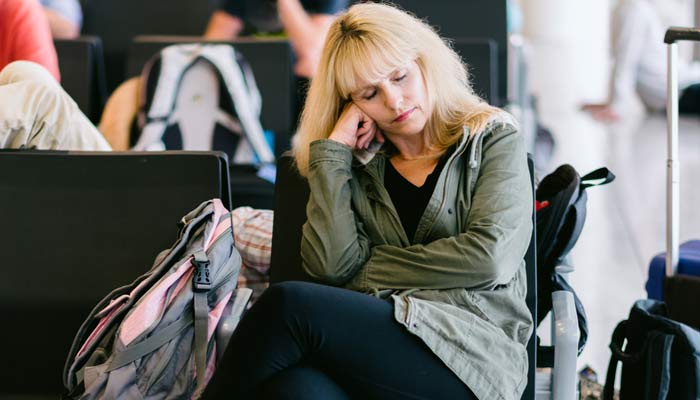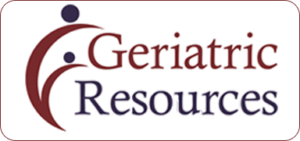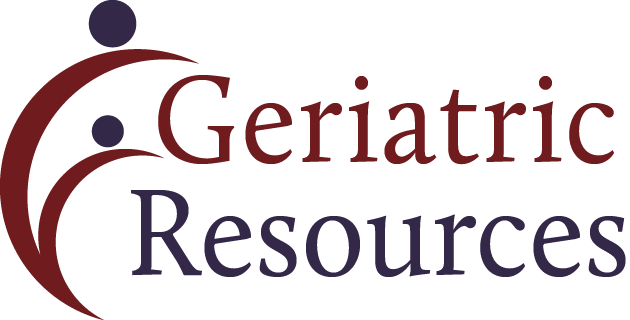
“We do what an adult child would do if they lived locally, knew the resources, and their parents would listen to them.”
—Crystal Littlejohn, MHSA, CMC, CSA; founder, Geriatric Resources
Are you caring for aging parents long distance?
- Perhaps your loved one is having more and more medical crises that require yet another trip to Phoenix.
- Or the independent-living community called you to say your relative needs a care manager in order to continue living there.
- Is caring for your elderly parent disrupting your professional, family, and financial stability?
- Has a neighbor called saying you really need to do something about your dad?
- Do you somehow get the feeling you aren’t getting the full picture?
These are just some of the many reasons that family members who care for elderly parents long distance call and ask us to get involved. It’s hard being a long-distance caregiver. We understand!
Fully 15 percent of families live more than an hour away from an aging relative. Long-distance families make up more than half our clients. We are set up to keep you informed using the media you prefer (email, text, telephone, video conferencing).
- A phone call if something urgent emerges
- Updates after every visit
- Updates as things change during a hospitalization
To learn more, give us a call at 623-776-3098.
Or schedule a free initial consultation.
Here’s how we help you safeguard your loved one from afar:
Assessment and plan
When you live far away, it’s difficult to know what’s really going on. Dad may not tell you about the fender-bender he got into. Mom may not mention all the purchases she’s been making on the Home Shopping Network. Recent concerns of the doctor may not find their way into your conversations. It’s not necessarily that they are trying to hide things. There may be some mild forgetfulness going on. Or they may simply feel it’s all just “part of getting old” and they don’t think much of it or don’t want you to worry.
An assessment and plan gives everyone an objective starting point. Here is a sampling of the things we look at:
- Cognitive abilities. How is their executive functioning? Memory? Judgment? Spatial perception? Decisional competence? We can outline the areas that are still going strong for your relative and those areas where they may need more support.
- Mobility and balance. What is their risk of falling? Are modifications needed to eliminate hazards in the home?
- Who is making meals? Going shopping? Is there moldy food in the refrigerator?
- Medication management. Are they taking pills as the doctor has ordered?
- Senior transportation. How are they getting around? Are there modifications that can be implemented to extend their ability to drive safely? Are Uber or Lyft an option?
- Social isolation. How are they staying connected? Do they need help with technology to participate in family conversations? Engage with friends?
- Emergency preparedness. Is there a plan in place for fire? No power? Do they have a “go bag”? A “stay bin”? How best to handle excessively hot days (increasingly common in Phoenix)?
Following the assessment, we can make a report of our findings and recommendations either in written format, over the phone, or via video conferencing with other family members. We’ll talk about what we recommend now and what we can envision may come up in the next six months or so. Then you can decide which items you would like to handle yourselves—removing trip and fall hazards, for instance—and which you would like us to implement in the context of ongoing care management.
Return to top
Ongoing care management
Families often hire us to manage the things that are too difficult to do from afar or that would benefit from the expertise of a professional in the field of aging. It could be that you’d like us to coordinate a meal service and transportation help. Or maybe you want recommendations for the best home care in the Phoenix area. Or the best assisted living. Or best memory care. You might hire us to get technology in place to improve your relative’s ability to stay connected. Or you might want us to serve as a patient advocate in the eldercare system, making sure you stay informed as things change over time.
Return to top
Medical advocacy
Our health care system is challenging for anyone, let alone an older adult who may not be tech savvy, is not assertive, has trouble hearing, or has memory problems. Medical care and treatment are so crucial to one’s ability to enjoy life that many families hire us for medical advocacy. We serve as a patient advocate, accompanying your loved one to visits, clarifying the pros and cons of various treatments, streamlining their medication regimen, and making sure all the specialists are communicating with each other. Most of all, we talk with your relative about their goals of care and make sure that all decisions center around the things that matter most to them.
After each visit, we will contact you in the manner of your choosing—phone, email, text, video conferencing—and let you know what the doctor is suggesting, what the labs indicate, and why one form of treatment may be better than another. You stay involved at whatever level you prefer.
In the case of a hospitalization, we can help you save time, stress, and money by recommending if/when it would be best to come to Phoenix. Sometimes it’s AFTER discharge because the person you care for may be most in need of help once they return home.
While we do not serve as a health care power of attorney (HCPOA), we are happy to advise whomever your relative has chosen and walk you through the various treatment options.
Return to top
24/7 on-call Peace of Mind program
If your loved one fell, had a stroke, or was in a car accident, who would be there at the hospital to let you know? Who would keep you up to date on test results? Likely diagnoses? The pros and cons of the treatment options? This is probably one of the scariest aspects of long-distance caregiving: The idea that they are all alone in a crisis with no one there who knows them.
Our Peace of Mind program is set up so you don’t have to worry.
We stay on call for your relative 24/7. We give them a card to keep in their wallet that directs emergency personnel to contact us in the case of an emergency.
We get to know your loved one.
We know their medical conditions, medications, doctor list, drug allergies, medical history, and family history. We connect with your loved one monthly, at a minimum, so if we are called in the middle of the night because they are in the ER, we know our information is up to date. We assemble emergency documents and talk with your loved one about treatments they might want even if they were unable to speak for themselves, and treatments in dire circumstances they know they wouldn’t want.
We keep you informed.
You can rest assured that we are available as your loved one’s patient advocate and as a communication bridge to you, the long-distance family caregiver. We understand how hard it is to be so far away. That’s why we call this our “Peace of Mind program,” so you don’t have to worry.
Return to top
Caregiver Coaching
Is caregiving testing your limits? Frustrated with your relative? Confused about dementia? Is there conflict between siblings about how best to care for mom or dad? Are you stressed about work, your spouse, and your own kids?
We can help!
This is not our first rodeo. With decades of eldercare experience across our staff, we have seen all the pressures that families are under. And we’ve learned—from experience and the research—what can help to make things better. You don’t have to reinvent the wheel.
- Some families hire us for a quarterly check-in during which they can talk about their parent’s dementia and disturbing behaviors. We teach them proven techniques for preventing triggers and redirecting outbursts.
- Some hire us to conduct a family meeting to get all the siblings on board and rowing in the same direction. Perhaps to more equitably spread the responsibilities.
- Others hire us to work through what does and doesn’t make sense in terms of how much they want to be involved with a parent who abandoned them. Or abused them. We can advise concerning ways to buffer yourself so you are shielded from direct contact. Ways you can set limits and respect your own need for boundaries while also providing for your relative in a way that aligns with your personal values and priorities.
Whatever issue you need to discuss—we don’t even need to meet your relative—we can help you find the balance you need by teaching you strategies, providing insights, and making practical recommendations for supportive services appropriate to your situation.
Return to top
Family meetings
Is there family discord concerning eldercare? Do siblings disagree? Are old rivalries arising? Old hurts opening up?
This is not unusual. When siblings are suddenly in more contact than they have been in recent years, everyone reverts to childhood dynamics. Family systems are deeply ingrained. Some siblings may be doing more work than others. Some may be more emotional. Tensions flare. This is entirely normal!
Let us help you recalibrate. Each of you may see the situation differently. And each perspective has its merits. Our experienced team can create a safe context where each sibling can express their concerns and desired solutions. The goal will be to arrive at a place where everyone does their best to set aside their interpersonal differences and contribute their unique talents to actualizing a plan developed by a professional in the field of aging.
Return to top
Coordinate a relocation
At some point your loved one may decide that it’s better to leave the Phoenix area and move closer to family. (You may have been wanting this for quite some time!) We can put you in touch with experienced move managers. They can handle the logistics of downsizing, profitably liquidating unwanted assets, packing, and moving. And then cleaning out the Phoenix residence in preparation for putting it on the market.
We can help by pinpointing which of several destination cities has the strongest eldercare support system. You may want help locating the best home care, best assisted living, or best memory care in the area. Perhaps you would like a care manager’s assistance in the new location. We are part of a national network and can point you to trustworthy colleagues.
Part of the move will also involve gathering up all your loved one’s medical records, the advance directive, a DNR if there is one, immunization records, etc. We can help you find a new insurance broker if Medicare Advantage, Medicare supplemental insurance, and Part D prescription insurance policies don’t transfer with a move outside the Phoenix area. Does your loved one need special transportation for the move? We can arrange for a companion to travel on a regular flight or even rent an RV and drive your frail loved one to their new home if public transportation is not advisable.
Return to top


